Online Learning Portal
Online Learning Portal

Hybrid Classes
We provide offline, online and recorded lectures in the same amount.

Personalised Mentoring
Every aspirant is unique and the mentoring is customised according to the strengths and weaknesses of the aspirant

Topicwise Mindmaps
In every Lecture. Director Sir will provide conceptual understanding with around 800 Mindmaps.

Quality Content
We provide you the best and Comprehensive content which comes directly or indirectly in UPSC Exam.
IAS Foundation 2024
Optional Classes
Current Affairs
Test Series
Others Links
UPSC Prelims Classes 2024
Prelims
Mains Classes 2024
Mains & Interview
Mains Material
Test Series
Free Study Material

DAILY NEWS ANALYSIS
Air Pollution in Delhi Background An AQI between 0-50 is considered ‘good’, 51-100 ‘satisfactory’, 101-200 ‘moderate’, 201-300 ‘poor’, 301-400 ‘very poor’ and 401-500 ‘severe’. Above 500 falls in the ‘severe-plus emergency’ category. Measures announced under GRAP- Severe+ or Emergency- (PM 2.5 over 300 µg/cubic metre or PM10 over 500 µg/cu. m. for 48+ hours): Stop entry of trucks in
Less pollution, more soil fertility Context: The article discusses the causes of stubble burning in the north Indian states. Stubble burning: Stubble burning refers to the practice of farmers setting fire to plant debris that remains on farms after harvest. The origin of stubble burning can be traced to the advent of the Green Revolution. Mechanised harvesting, a feature of the Green Revolution, utilised the combined harvesting technique which left behind substantial plan
Commission for Air Quality Management (CAQM) Context Air pollution is a serious problem with environmental, public health and economic dimensions. Northern India gets exposed to hazardous levels of air quality almost every year. Acknowledging this public health hazard, the centre government has promulgated an ordinance to set up a Commission for Air Quality Management (CAQM) in National Capital Region (NCR) and Adjoining Areas. Commission for Air Quality Management (CAQM) T
Trends in Air Pollution: CPCB According to a recent study commissioned by the Central Pollution Control Board (CPCB), the rate of increase in pollution levels in southern and eastern India is far greater than in the Indo-Gangetic plain (IGP). It has also been found that air pollution in rural areas has increased at par with urban India. About the Study: It was jointly carried out by IIT-Delhi and CPCB and analysed data from 2000 to 2019. The study, conducted on the basis of sate
UNEP report on CO2 Emissions In its recent report, UNEP highlighted that CO2 emissions from the building sector are highest in 2019. The building sector emitted more than a third of global energy-related carbon dioxide. Of the total global emissions, building operations accounted for 28% & construction-related industries (cement, glass, etc) accounted for 10%. The use of fossil fuels for power generation & carbon-intensive electricity sector contributed to the increased CO2 emi
Vapour Recovery System Context Green concern: Fuel stations are a major source of emission, according to the National Green Tribunal. Committee’s recommendation A joint committee appointed by the National Green Tribunal (NGT) to study air pollution in Kerala has recommended the installation of a vapour recovery system at fuelling stations and retrofitting of diesel vehicles with particulate filters to improve air quality. The report pointed out that petrol refue
World Air Quality Report: Delhi is the most polluted city in the World World Air Quality Report is given by IQAir Visual and Greenpeace. The main objective was to measure the presence of fine PM 2.5. Delhi remained the most polluted capital city in the world but India, on the whole, had improved its average annual PM2.5 (particulate matter) levels in 2020 than in 2019, according to a report from IQ Air, a Swiss air quality technology company specialising in protection against airb
World Air Quality Report, 2020 IQ Air, a Swiss air quality technology company released a report titled “World Air Quality Report, 2020”. About World Air Quality Report: World Air Quality is an annual report. The report is based on PM2.5 data. It is from 106 countries based on data from ground-based monitoring stations. Key Findings Related to India India is home to 35 of the world’s 50 most polluted cities in the World. Delhi has gotten list
Air Pollution in Delhi UPSC Air Pollution and AQI Context: UPSC GS Paper III – Air Pollution (Prelims – Mains – Interview) What is the National Air Quality Index? Launched in 2014 with outline ‘One Number – One Color -One Description’ for the common man to judge the air quality within his vicinity. The measurement of air quality is based on eight pollutants, namely: Particulate Matter (PM10), Particulate Matter (PM2.5), Nitrogen Dioxide (N
Black Carbon study by World Bank About Black Carbon Black Carbon (BC) =It is a Pollutant as well as a GHG. It is a solid particle or aerosol & a component of Particulate Matter. Black carbon consists of pure carbon in several linked forms. It is formed through the incomplete combustion of fossil fuels, biofuel, and biomass (like soot & dust), and is emitted in both anthropogenic and naturally occurring soot. It is short-lived. It is the strongest a
Accurate estimation of Black Carbon over Himalaya Accurate estimation of black carbon (BC), the second most important global warming pollutant after CO2, will now be possible using optical instruments in the Himalayan region. Thanks to a parameter called the mass absorption cross-section (MAC) specific to the Himalayan region that scientists have estimated. It will also improve the performance of numerical weather prediction and climate models. Scientists at the Aryabhatta Resear
National Mission on use of Biomass in coal-based thermal power plants Ministry of Power has decided to set up a National Mission on the use of Biomass in coal-based thermal power plants. This would further support the energy transition in the country and our targets to move towards cleaner energy sources. Objectives: To increase the level of co-firing from the present 5% to higher levels to have a larger share of carbon-neutral power generation from the thermal power plants. To tak
Graded Response Action Plan (GRAP) Background An AQI between 0-50 is considered ‘good’, 51-100 ‘satisfactory’, 101-200 ‘moderate’, 201-300 ‘poor’, 301-400 ‘very poor', and 401-500 ‘severe’. Above 500 falls in the ‘severe-plus emergency’ category. Measures announced under Graded Response Action Plan (GRAP)- Severe+ or Emergency- (PM 2.5 over 300 µg/cubic meter or PM10 over 500 µg/cu. m. fo
Microplastics in Ganga An analysis of the stretches of the river Ganga by a Delhi-based environment NGO, Toxics Link, has revealed pollution by microplastics, defined as synthetic solid particles sized ranging from 1 micrometre to 5 millimetres (mm), which are insoluble in water. The Ganga flows across five States and has been at the centre of a massive multi-crore undertaking by the Union government, in the form of the National Mission for Clean Ganga, to rid it off contamination.
Green Crackers and NGT Green crackers are less harmful and less dangerous than conventional ones. They are the crackers with reduced emission and decibel levels. They are known as 'green' firecrackers because they have a chemical formulation that produces water molecules, which substantially reduce emission levels and absorbs dust. They are cheaper to manufacture and produce 30-35% less SO2 and NO2 emissions. What are the Green Crackers? Traditional firecrac
Aerosol and Climate Change Scientists tracing the concentration, size and evolution of aerosol particles smaller than 3 nanometres at an urban location in India have found the frequent formation of sub-3nm aerosol particles in the atmosphere. This has critical importance as a major fraction of these newly formed particles can reach sizes of cloud condensation nuclei where they have climatic impacts. The formation of small molecular clusters of sub-3nm size is technically called aero
Air Quality Commission Bill for NCR Delhi cleared To read complete news on Air Pollution in Delhi: click here The Lok Sabha passed the Bill to formalise the Commission for Air Quality Management For National Capital Region and Adjoining Areas. The body has a full time chairperson and a range of members consisting of both representatives from several Ministries as well as independent experts and will have the final say on evolving policy and issuing directions to address air po
India’s first Smog Tower in Delhi Chief Minister Arvind Kejriwal on Monday inaugurated a ‘smog tower in Connaught Place and said similar towers would be built across the city if the results of the current pilot project are satisfactory. What is a Smog Tower? The smog tower is a 24-metre-high structure fitted with fans and air filters. This is to solve the problem of Air Pollution in Delhi. It will draw in polluted air from the top and release filtered air near the
International Day of Clean Air for Blue Skies To create awareness and encourage efforts to enhance air quality under the National Clean Air Programme, the Ministry of Environment, Forest and Climate Change (MoEF&C) recently held the 3rd International Day of Clean Air for Blue Skies called "Swachh Vayu Diwas ("Swachh Vayu Neel Gagan") today (NCAP). 20 of the 131 cities chosen for its National Clean Air Programme (NCAP) have surpassed their 2017 levels of the National Ambi
World Ozone Day In December 1994, the UN General Assembly declared September 16 to be the International Day for the Preservation of the Ozone Layer. Since then, it has been observed with the aim of raising awareness of the Ozone layer's deteriorating state. On September 16, 1995, the globe observed the first International Day for the Preservation of the Ozone Layer. Theme: Global Cooperation Protecting Life on Earth is the theme for the 2022 International Day
Taj Mahal & Pollution Warning The Supreme Court recently ordered a halt to all commercial activities within a 500-meter radius of the Taj Mahal. More on the news: The Supreme Court recently ordered the Agra Development Authority to halt all commercial activity within 500 metres of the Taj Mahal, a UNESCO World Heritage Site. The Supreme Court has repeatedly emphasised the Taj Mahal's failure to protect it from various form
Global Methane Pledge Methane emissions will likely increase by 13 percent by 2030 without the Global Methane Pledge. About Global Methane Pledge: It was launched in 2021, aims to keep alive the 1.5 degrees Celsius goal. Over 100 countries have committed to reducing global methane emissions by at least 30 per cent by 2030 from 2020 levels. This reduction could eliminate over 0.2C warming by 2050 India, which is not a part of the Global Methane Pledge, is among the to
Green Crackers The Chandigarh government recently approved the use of green crackers. About Three Categories of Green Crackers: developed by the Council of Scientific and Industrial Research (CSIR). SWAS (Safe water releaser) Have a small water pocket/droplet which gets released when burst, in the form of vapour. Suppresses the dust released by releasing water vapour in the air. Does not comprise potassium nitrate and sulphur and the particulate dust r
Black Carbon: Explained In Lok Sabha, the Minister of State for Environment, Forest and Climate Change outlined the various measures taken to counter black carbon. Under the Indian Space Research Organization (ISRO) Geosphere-Biosphere Programme, under which ISRO operates a network of aerosol observatories and black carbon mass concentration is one of the parameters being measured. What is black carbon? Soot, often known as black carbon, is a type of tiny particulate air
Methane Emission Report In a study recently published under the title "Wetland emission and atmospheric sink changes explain methane growth in 2020," it is suggested that in 2020, record-high levels of methane emissions were probably caused by warming wetlands and low nitrogen oxide pollution. What are the Findings? Summary: Global methane emissions increased from 9.9 parts per billion (ppb) in 2019 to approximately 15 ppb in 2020. Human-related methane emissions
Air Pollution and Public Health in South Asia: World Bank Report Striking for Clean Air: Air Pollution and Public Health in South Asia is a recent report from the World Bank. The report explains how continuing to implement national policies as they have been (largely since 2018) will produce results, but not at the level desired. Major Findings India: There are six significant airsheds in India, some of which are shar
What is air quality index? The Air Quality Index is acquired by measuring emissions of eight major pollutants present in the air: Particulate matter (PM2.5 and PM10), Ozone (O3), Carbon Monoxide (CO), Nitrogen Dioxide (NO2), Sulphur Dioxide (SO2), Lead (Pb) and Ammonia (NH3) emissions. Readings are noted every hour. Each country has their air quality indexes based on its air quality standards. Air Quality Index India The government agencies are responsible for communicating to the publi
According to scientists, North India can tackle smog using eco-friendly farm practices from the South. What is a smog? Smog= Smoke + Fog Photochemical smog- It is called as a Los Angeles smog which is produced when sunlight reacts with nitrogen oxides and at least one volatile organic compound (VOC) in the atmosphere. Sunlight hits these chemicals, thus forming airborne particles and ground-level ozone or smog. Sulphurous smog -It is called as London smog
They are fireworks made with a reduced shell size without ash, and use additives such as dust suppressants to reduce emissions and particulate matter. These crackers lack barium compounds that is responsible for the green hue and noise pollution. The idea was introduced by the Council of Scientific and Industrial Research-National Environmental Engineering Research Insititute (CSIR-NEERI) in 2018. 3 broad categories of green crackers - SWAS (safe water rele
The 9th National Level Pollution Response Exercise (NATPOLREX-IX) was conducted by the Indian Coast Guard off Vadinar, Gujarat recently. It demonstrates the level of preparedness and coordination between various resource agencies to respond to a marine oil spill invoking provisions of the National Oil Spill Disaster Contingency Plan (NOSDCP). The Indian Coast Guard functions as the Central Coordinating Authority for response to Oil spills in Indi
To regulate the output of air pollutants from compression and spark-ignition engines equipment, including motor vehicles.They are in line with the European emission norms with a time lag of 5 years. Launched by- Central Pollution Control Board (CPCB) under the Ministry of Environment, Forest and Climate Change (MoEFCC). Mandatory provision- In 1999, Supreme Court mandated that all vehicles in India have to meet the Euro I or India 2000 standard. Mashelk
Air pollution and Air quality Measures in India (Environment) GS Paper-3 P-M-P Air pollution may be defined as the presence of any solid, liquid or gaseous substance including noise and radioactive radiation in the atmosphere in such concentration that may be directly and/or indirectly injurious to humans or other living organisms, property or interferes with the normal environmental processes. An ever-increasing use of fossil fuels in power plants, in
Major programmes to control Air Pollution National Clean Air Programme? It was launched by the Ministry of Environment, Forests, and Climate Change (MoEFCC) in January 2019. It is the first-ever effort in the country to frame a national framework for air quality management with a time-bound reduction target. The NCAP's goal is to reduce average particulate matter (PM) concentrations by 40% by 2026 in 131 cities. Initially aimed for a 20-40%
Air pollution and Air quality Measures in India (Environment) GS Paper-3 P-M-P Air pollution may be defined as the presence of any solid, liquid or gaseous substance including noise and radioactive radiation in the atmosphere in such concentration that may be directly and/or indirectly injurious to humans or other living organisms, property or interferes with the normal environmental processes. An ever-increasing use of fossil fuels in power plants, in
Air Quality Management Exchange Platform It is a platform that provides the latest air quality management guidance and tools proposed to meet WHO Air Quality Guidelines interim targets. It was developed in response to a resolution passed at this year’s United Nations Environment Assembly to increase regional cooperation and action on improving air quality globally. Significance of the platform It will help to address air quality management

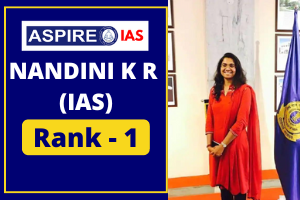
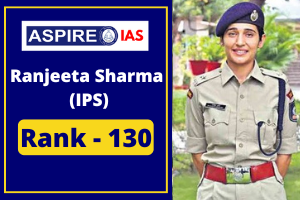



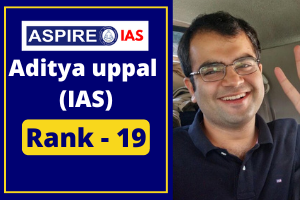
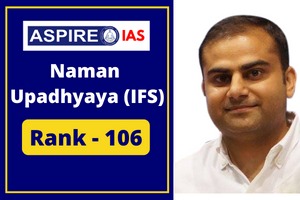
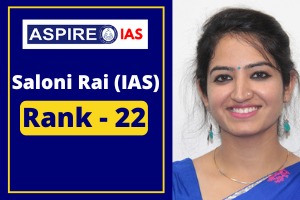










Our Popular Courses
Module wise Prelims Batches
Mains Batches
Test Series